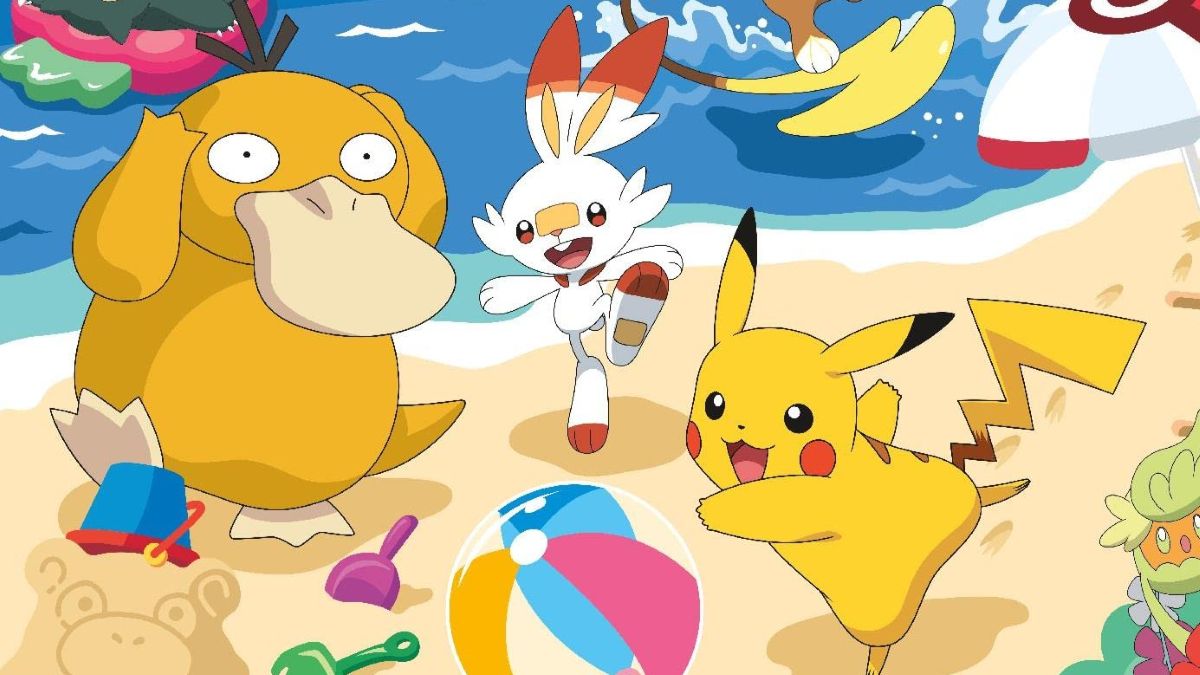
While Microsoft has been responsible for bringing several high-profile franchises to its consoles, one of my favorite aspects of the company has been its commitment to indie gaming. Starting with the rise of Xbox LIVE Arcade in the early days of the Xbox 360, the industry giant has frequently championed small and unique titles for its consoles. One of its earliest gets for the Xbox One was Max: The Curse of Brotherhood from Danish developer Press Play. Now, just one year removed from that release, the studio is back with Kalimba, which I recently had the chance to sit down with.
The first thing that catches your eye when you boot up Kalimba are the colorful and vibrant visuals. Described by Press Play as “trixelated,” what makes the visuals so unique is the fact that everything in the world is composed of triangles. Whether it be the totems players control or the sky in the background, you can see the individual triangles that make everything up. While this may not sound too impressive when I clumsily describe it, seeing it in motion is a sight to behold.
Besides the wonderful look of Kalimba, what intrigued me right off the bat was the surprisingly humorous tale it tells. At the start of the demo, we witness the striking down of a sacred totem pole by an evil shaman. And while that provides a decent explanation for why smaller totem pieces are searching for larger totem pieces, the real star of the show is Hoebear, our trusty narrator. Dressed like a colorblind pimp, Hoebear is a purple bear who frequently breaks the fourth wall in order to explain things. He may always sound like he just blazed one, but his humor helps make the title stand out from its competition.

The best way to describe the actual gameplay of Kalimba is that it is a puzzle platformer. In single-player mode, players control two different totems at the same time, one green and one purple. The two colored totem pieces must work together in order to navigate increasingly difficult platforming sections and collect, of course, triangles. These triangles add to your final score upon completion of each level, and if you can correct every piece in a level, you’ll unlock a gold-covered totem piece. However, every death that befalls you knocks a point away from your final score, which can lead to you receiving a rather crummy totem piece.
The eight included levels would already be difficult enough as is, but the fact that you must constantly keep track of each unique piece only further increases the difficulty. On top of that nonsense, Press Play also frequently introduces new gameplay concepts over the course of the demo, including gravity shifts and the ability to swap colors between the two totem pieces, which proves to be rather important.
You see, while there are enemies found in each level, the biggest threat to our heroes in Kalimba are the color co-ordinated walls that need to be crossed. The green totem piece can move through green barriers, while, obviously, the purple piece can cross purple barriers. If green touches purple, or vice versa, the totem piece will disintegrate. So in order to pass these sections, players need to frequently swap colors, or in later cases, stack the totems correctly. These sections will test your noodle just as much as they will test your reflexes. However, while it is certainly difficult at times, I never found myself getting too frustrated at the game. Dying happens quite a bit, but a rather generous checkpoint system helps keep the frustration to a minimum.
On top of the totem-swapping, single-player action, I also had the chance to test out a few of the co-op specific sections of Kalimba. Over 10 unique levels, playing with a friend retains the same core concepts, but switches things up by bringing four totems into the action. Each player will control two colored totems, and similar to the main game, must figure out how to cross different-colored barriers. While not as fiendishly difficult as playing by your lonesome, the co-op sections can be equally tough at times. Furthermore, figuring out the solution to each puzzle that pops up is a rewarding task, and I’m looking forward to seeing what Press Play can cook up in the later levels of the campaign.
After popping up on my radar just last month, Kalimba has quickly shot to the top of my most anticipated list. It’s a gorgeously unique slice of platforming heaven, and if the full game can provide the same amount of entertainment I got from this brief demo then I will be more than satisfied.
Press Play is set to bring the platformer to the Xbox One on December 17th, with a PC port following in January 2015.










Published: Dec 2, 2014 06:58 am